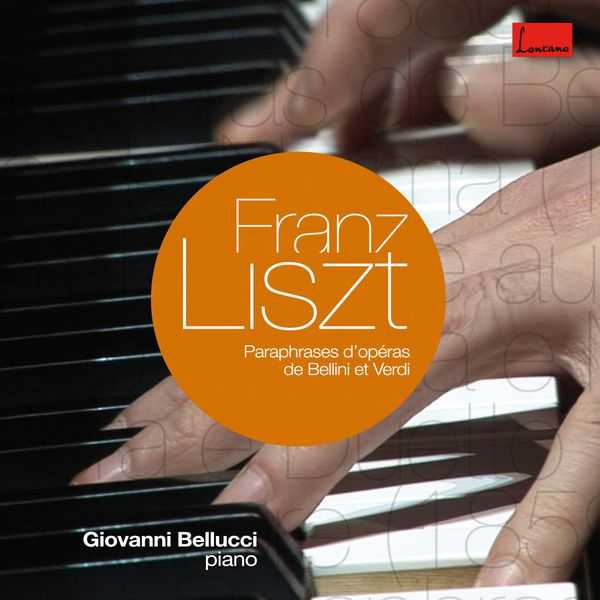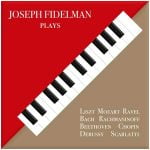
Composer: Franz Liszt
Performer: Giovanni Bellucci
Format: FLAC (tracks)
Label: Warner
Release: 2009
Size: 215 MB
Recovery: +3%
Scan: cover
01. Réminiscences de Norma, S. 394
02. Fantasie sur des motifs favoris de La Sonnambula, S. 3
03. Coro di festa e Marcia funebre de Don Carlos, S. 435
04. Danza sacra e duetto finale d’Aida, S. 436
05. Miserere du Trovatore, S. 433
06. Paraphrase de concert sur Rigoletto, S. 434
This album of paraphrases from operas by Bellini and Verdi displays Giovanni Bellucci’s copious gifts on the piano and Liszt’s genius in taking others’ works and making them very much his own. The excellent sound quality draws the listener in to the Réminiscences de Norma, where the piece begins with a bit of reserve, then opens up into absolute lushness. The upper passages are played with such a delicate touch and tenderness, even if Bellucci does tend to hammer away rather forcefully at some of the lower notes. This tenderness of touch, like a whisper, reappears in other pieces, such as Aida, which is so delicate, feminine, and beautiful; it is perfectly fitting for a princess. Though Aida is a familiar opera, as are the others on this CD, Liszt carefully avoids a lot of the common arias and tunes one would associate with them. Even when the main melodies are recognizable, such as in the Miserere aus Trovatore, the composer arranges them with variations and swelling scales in the left-hand that are dark and menacing. The work takes on a character of its own, which is simply breathtaking and stunning. Bellucci is extremely capable of conveying the composer’s various moods even within the short span of a piece, such as in the fantasy on Sonnambula, which is in turns playful, lyrical (with swelling arpeggi under the melody), and march-like, with the piano taking the place of a coloratura. In the “Coro di festa” from Don Carlos, Bellucci is like a nonstop motor, from the aggressive, sinister beginning to the tinkling descending scale that is a pure pleasure to hear, and the Marcia funebre is played with regal restraint that gives way to an exhilarating ending where the listener can absolutely feel the cascade down the whole piano. The album concludes with a paraphrase from Rigoletto, which alone is worth the price of the album. The beginning is heartbreaking, yet the rest of the piece is no less thrilling, for Bellucci pays such careful attention to phrasing that one eagerly anticipates each note. Needless to say, the music is technically demanding, but this is no problem for Bellucci, who is so focused on the artistry that one does not even think about the skill required to play these paraphrases. Bellucci is arguably one of the finest interpreters of Liszt around. Highly recommended.



